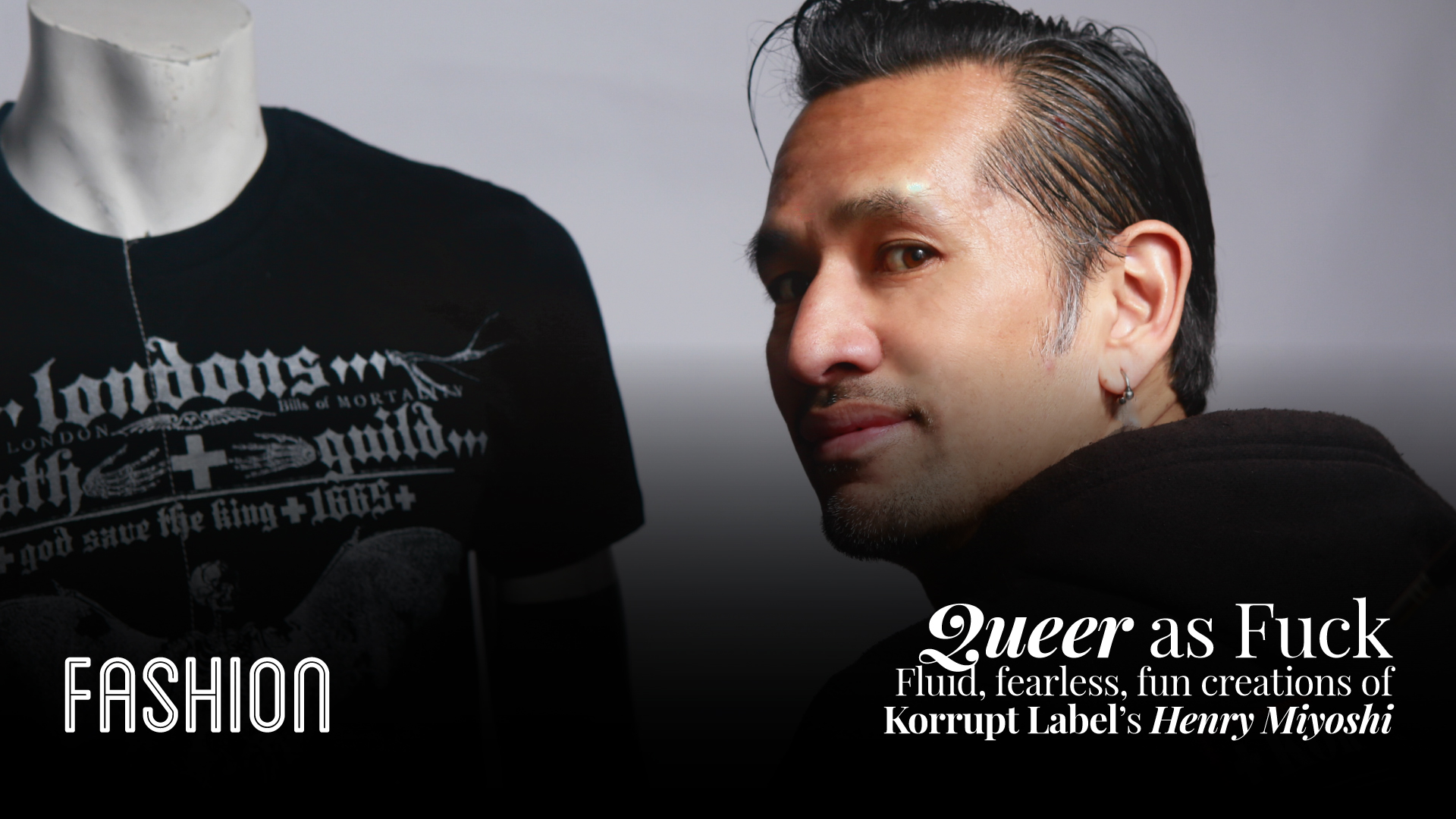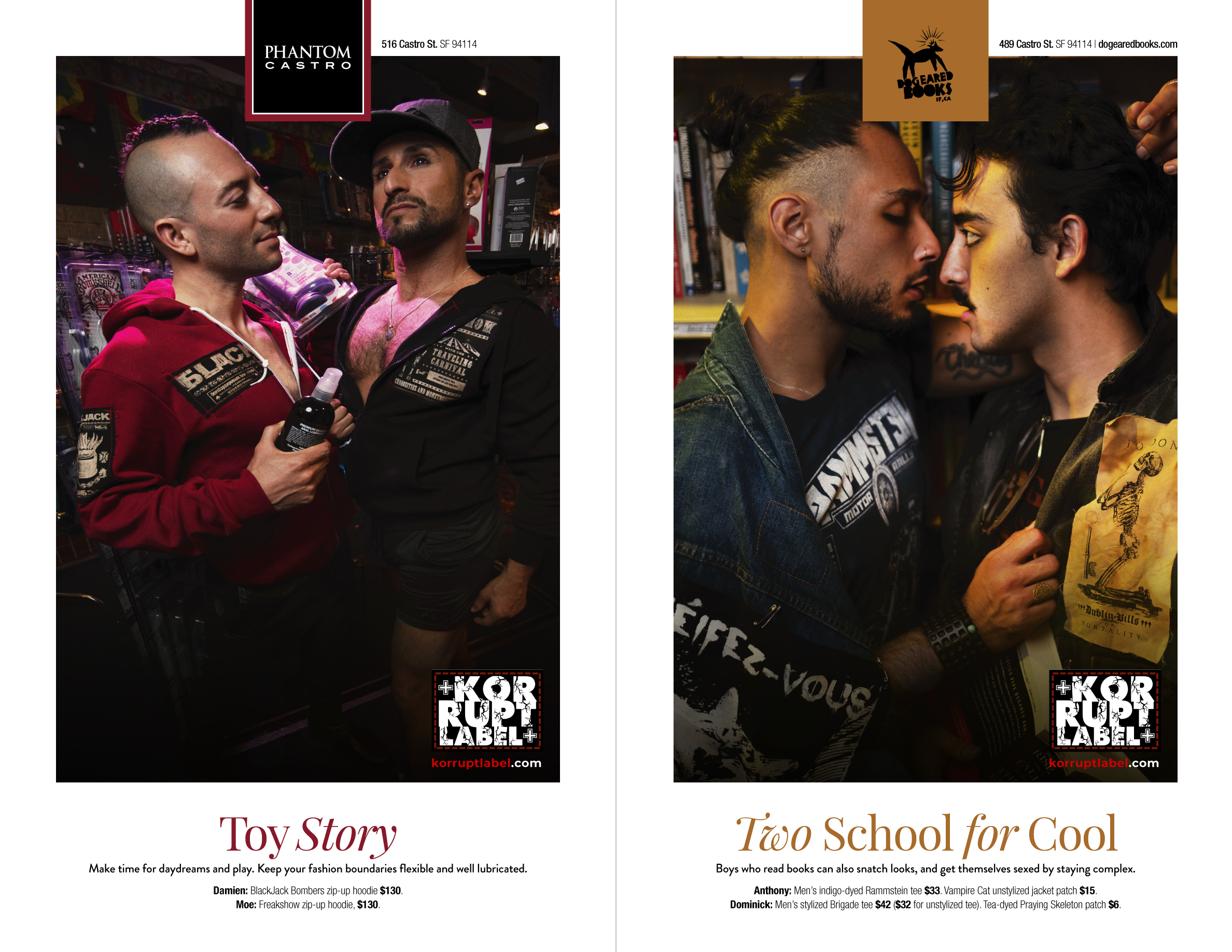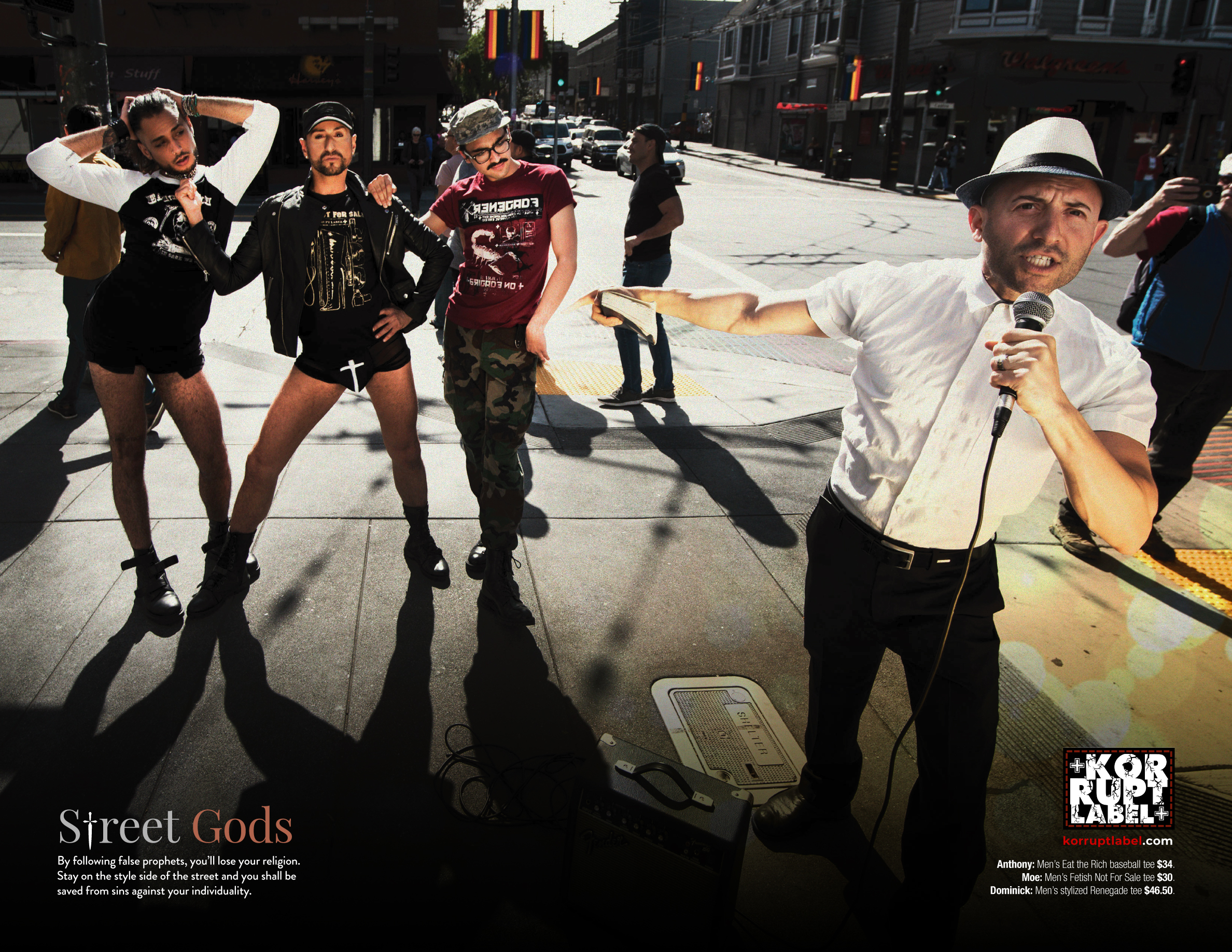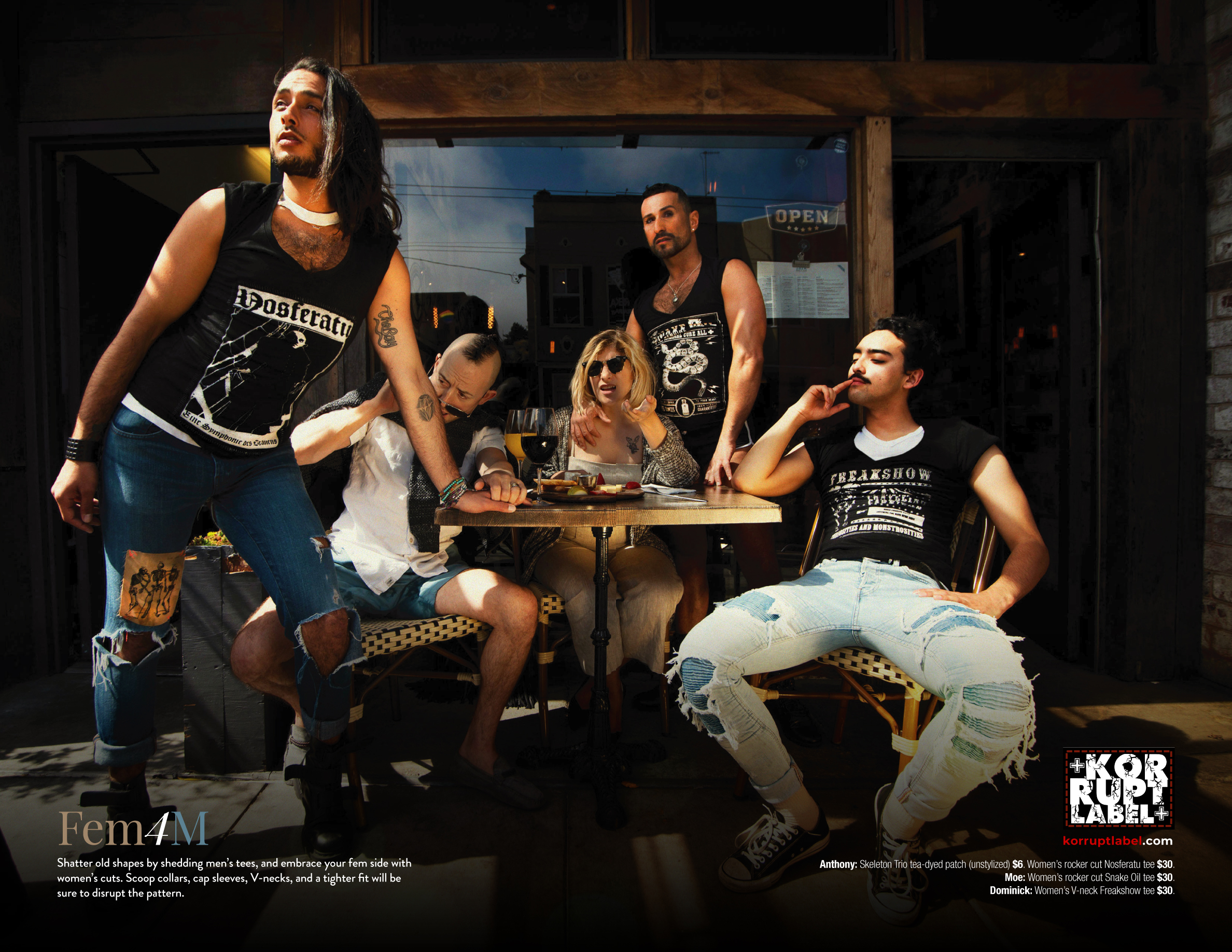FASHION
Queer As Fuck
featuring the Gender Fluid, Fearless & Fun Prints of Korrupt Label’s Henry Miyoshi
■ JOHN MCARDLE
For Henry Miyoshi, the road has been a circuitous and bumpy journey, but a successful one despite the inherent challenges faced by a person of color. He was born in Bangkok to a Thai mother who was part Indian, and a Japanese-American father who was serving in the US Air Force. This combination leads many people to mistake him for something other than Asian, but his mixed heritage is about as Asian as it gets.
Henry shares that even as a little kid he was the creative and curious type. “When we lived in Thailand, my mom would get yell at me for bringing Rhino beetles into the house,” he laughs, “I was mesmerized by all the intricate and colorful detail on such a small creature, how they moved, their world.”
When Henry was seven, his father’s commission took the family to Honolulu, leaving his childhood literally and figuratively a world away. Adjusting to American culture was very difficult, particularly as a brown-skinned foreigner despite being born an American citizen. His father was strict and judgmental – perhaps a typical military dad – but also very culturally Japanese, having high and unforgiving expectations for his second eldest son. Henry being gay didn’t help their already strained relationship.
Regardless, Henry managed to adapt. After years of having fun poked at his or his Mom’s English, the “exotic” cooking smells in their house, or the predominantly white culture on the base being confused about the differences between so many distinct Asian ethnicities, he became accustomed to the typecasting that came with being a person of color in America.
A critical escape was the music of various punk bands like Social Distortion, Minor Threat and L7. New wave and punk music was a way for Henry to find comrades, listening to cassettes and going to live shows. At 16, Henry dyed his hair blue and styled it into a Mohawk. Along with ripped cutoffs and Doc Martens, this immersion into the punk culture began his appreciation of the DIY ethic, and contributed to the beginnings Korrupt Label.
Miyoshi recalls, “I made myself a custom jacket with tons of patches, studs, pins & buttons and painted sleeves. It was my ‘uniform’–it represented who I was at the time.”
At the age of 18, Henry struck out on his own in Los Angeles where quickly discovered his tribe of artistic misfits in the underground punk & rock music scenes. He began to direct his creative ability towards designing show posters. He was having a blast, but after a while he wanted something more stable than what the Los Angeles party scene had to offer–so he decided to move to San Francisco. There he found a creative outlet styling mannequins and dressing windows for Saks, Gucci and Gump’s at a time when stores had the budget for lush windowscapes.
Henry’s tenure working in visual merchandising piqued his underlying fascination with fashion, and he had already been learning how to silkscreen and sew on the side.
Miyoshi experimented with these new skills by making one-of-a-kind punk rock jackets for himself. His friends began to ask if Henry could make custom pieces for them, and encouraged him to start his own business.
While Henry was unsure about leaving the security of his job, he’d grown beyond his role, and in particular, he’d become weary of being the “brown go-to” for fetching coffee and the like – particularly in the entitled, high-end environments of San Francisco’s premiere department stores. Henry took the leap and decided to open his own small business: Korrupt Label.
The company’s start was simple, with only one product: punk rock patches, sold renegade style out of a suitcase, wherever Henry could set up and make some money before the police chased him away.
Over the next 10 years, Miyoshi grew the company beyond patches, evolving into a full line of men’s and women’s clothing, accessories and custom design. Henry reflects, “I had no idea it would turn into what it is today. It’s been a lot of work, but my passion for the business is also what drives me.”
What does Henry see for the future of Korrupt Label? “I’d love to help found an urban art collectiv—a place where artists can support each other, and find their creative voice,” he muses. With a big grin, Miyoshi adds, “It would also be cool to see Korrupt Label expand more firmly onto the east coast, and to maybe even bring the brand back to Thailand.”
